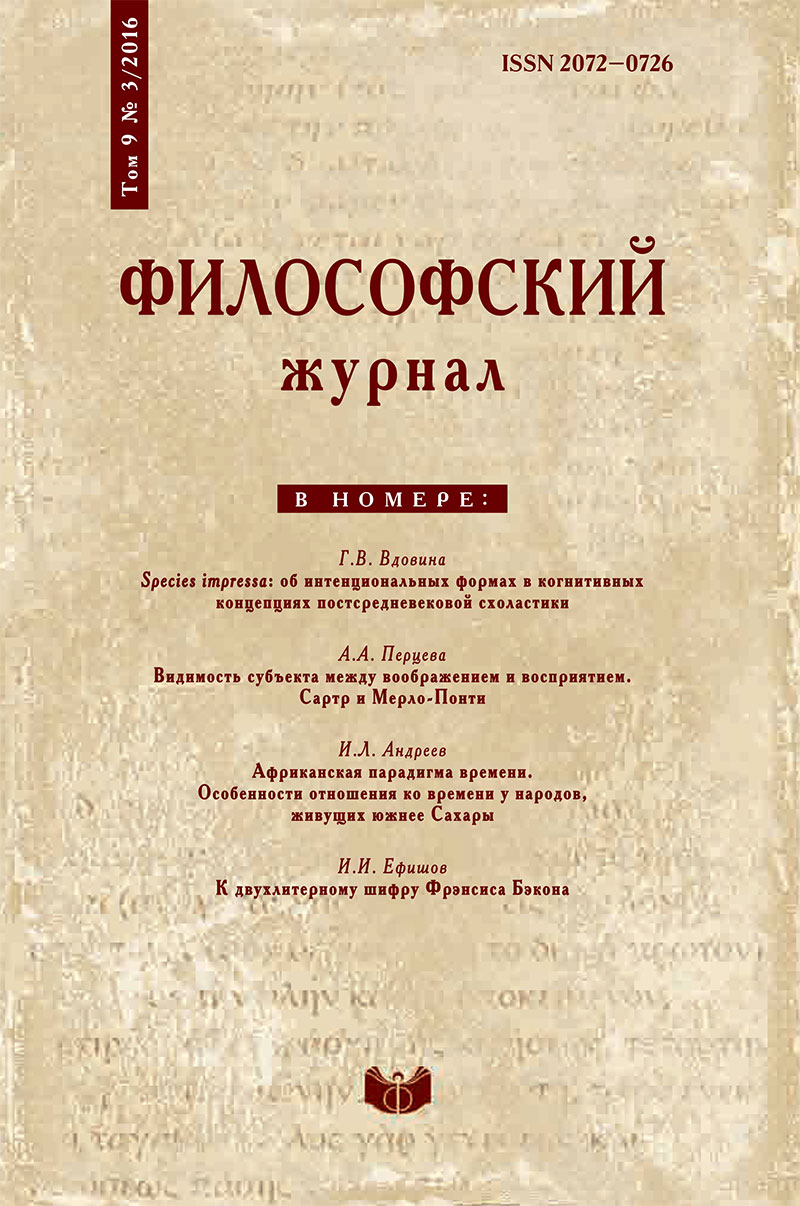Species impressa: on the intentional forms in cognitive doctrines of post-medieval Scholasticism
DOI:
https://doi.org/10.21146/2072-0726-2016-9-3-41-58Keywords:
intentional form, species impressa, scholasticism, Augustine, philosophical psychology, cognitive powerAbstract
The present article discusses the intentional form, or species impressa. It is an element of the cognitive chain, which, from the standpoint of scholastic philosophical psychology, delivers data about the object of knowledge to the respective cognitive faculty. In the first section the paper offers an analysis of the theory of species as developed by Augustine, and of the notions of “impressed” and “expressed” forms first introduced by him. In the second section the author proceeds to examine the scholastic theory of species impressa devised during the early modern period. This theory attributed to the impressed intentional form a double function, that is, 1) to activate the respective cognitive power, sensory or intellectual, subsequently redefining it to eventually achieve the knowledge of a particular thing, and 2) to represent that thing in order to form, through such representations, a sensual image or concept of it. To understand the essence of species impressa, it is important to distinguish between its ontological nature (all species are real accidents in the category of quality) and its cognitive content (which is unreal but able to represent a real thing, different from the species itself). The specific role of species impressa consists in being a virtual sign of an external thing, in other words, a sign that physically activates a cognitive potency. The concept, on the contrary, is a formal sign, or formal representation, of a thing, and its only function is to represent the thing without further producing any physical actions in the cognisant soul.






